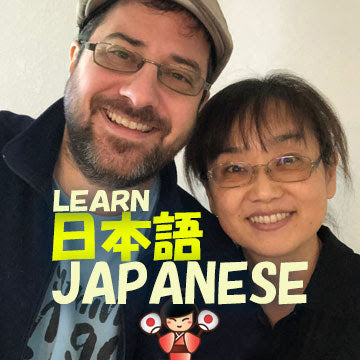
New to Japanese?
I bet you are excited and ready to hit the ground running. That's motivation and that's very healthy--until you run out of steam. The good news is, there are ways to avoid that burnout and ways to organize your learning to make the most of your study time.
A few points/resources to consider:
- Realize that learning Japanese is a lifelong journey; a marathon and not a sprint.
- Your mindset and keeping motivation up is key. Checkout our blog post here for ways how to do this.
- Enough about mindset! Let's talk Japanese:
Do you know hiragana? We highly recommend making this your number one priority. Check out the FREE hiragana resources at our sister site TheJapanesepage.com. Everything you need is there, but you can also purchase our book all about hiragana for more information here. - The Japanese writing system is made up of three systems: hiragana, katakana, and kanji. Once you learn hiragana, katakana will be a snap. Kanji, the 2000 or so Chinese characters, is a different story. It is something you will learn a little here, little there for years to come.
- Japanese students use pencil boards to keep their writing neat. Totally unnecessary, but also totally cool is our hiragana and katakana shitajiki here.
- Okay, so you know hiragana. Now what?
We ALWAYS recommend getting a thorough textbook that will take you step-by-step in a systematic approach to learning the basics of the language. There are many out there and honestly, if you have something already, I would recommend sticking with it. But we stock and recommend the Genki series here. - For the Genki series, you will at least need the textbook (2nd edition Volume 1). We only recommend the workbook IF you have a teacher or someone who knows Japanese well enough to correct your handwriting and sentence structure as the workbook can have fairly open ended questions. If you are not in a classroom, we do recommend you getting the answer key too.
- The Japanese Language Proficiency Test is certainly not required to master Japanese, but it is something we wholeheartedly recommend. It provides a way to measure (however imperfectly) your progress and gives you well-deserved bragging rights. In a later blog post, we'll take a closer look at the JLPT. Here is the link to our N5 books.
- Listening resources can be a huge boost to your vocabulary and listening comprehension. It's a great time to be learning Japanese if you are outside Japan. What was very difficult (really impossible) to get back in the 1990s, you can get today with a click of a button. While this is an affiliate link, we definitely recommend JapanesePod101. They've built a massive lesson base and have tons of free podcasts as well. JapanesePod101.com - The Fastest Way to Learn Japanese Guaranteed
- We don't recommend this book immediately, but once you have a good start with your textbook, A Dictionary of Basic Japanese Grammar is a no brainer. This is one book I (Clay) bought back in the 90s (an earlier edition of course) and I still have near my desk for occasional reference. It's. That. Good.
- Also once you've made headway with your textbook, you may want to add kanji to your daily study habits. The Basic Kanji Book series is solid and will guild you to learning the most essential 500 kanji.


